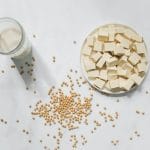Thanks to plant-based meat, vegans can now enjoy burgers, bacon, meatballs, hotdogs, and all that good stuff. In recent years, plant-based meats have been receiving significant attention. This has led to some nutritionists claiming that plant-based meats are a nutritional substitute for traditional meat. Some go as far as saying that vegan-meat products have a higher nutritional value than traditional meat products. Although both act as protein sources, they have multiple nutritional differences.
Continue reading as we compare the nutritional values of plant-based meat with traditional meat and consider the advantages and disadvantages of using one over the other.
Plant-Based Protein
Plant-based or vegan meat products are made with plant-based ingredients, and they taste delicious. These products are replacing traditional meats in recipes, converting them from meat to vegan. Soy and veggie burgers did not have a good acceptance rate because of their flavor and texture. But the newer products (Impossible™ Burgers and Beyond Meat®) are gaining popularity due to plant-based meat having almost the same flavor and texture as traditional meat.
Newer Plant-Based Meat Options
The modern plant-based meat products have succeeded in matching much of the nutritional content of new vegan-meat products to traditional ones. These nutrients include fat, protein, and moisture. However, these products are heavily processed during their making, which negatively impacts the overall digestibility. It is recommended to include vegetables in our diet but not in the plant-based, processed, and meat-like form.
Types of Plant-Based Meat
The following plant-based meats have a high popularity rate:
1. Seitan
A plant-based meat made from wheat gluten.
2. Beyond Meat products
Beyond Burger products use pea protein as their main ingredient.
3. Impossible Burgers
Impossible Burgers use soy proteins and potatoes in place of pea proteins.
4. Jackfruit
Jackfruit flesh is used as a meat alternative in vegan dishes.
5. Soy-based foods
This legume is the oldest known plant-based meat alternative. Soy foods are consumed in the following forms:
- Soybeans
- Tempeh
- Tofu
Nutritional Comparison of Plant-based Meat and Traditional Meat
| Facts Chart | |
| Plant-Based Meat Products | Traditional Meat Products |
| These are made by heavily processing protein products from vegetables.They use isolated pea and soy protein.Their fat content and macronutrients match those of traditional meat.They require several ingredients to mimic the flavor and texture of traditional meat.They contain fiber.They and methionine. They require industrial insertion of meat flavor to overcome soy and pea flavor. | These contain a good variety of essential amino acids and absorbable iron.These contain increased cholesterol levels.These have a better nutrient density and protein quality and quantity.These contain 50% essential saturated fatty acids.These do not contain fiber.These are a natural source of Vitamin B12These have an original, charry, and meat flavor. |
Nutrition of Plant-Based VS. Traditional Meat
Human bodies require essential amino acids for healthy growth and proper maintenance. As humans cannot produce essential amino acids by themselves, they depend on protein consumption to fulfill this need. Animal proteins are a better source of essential amino acids than plant proteins.
The amino acid balance from meat-based proteins is essential for growth and development of growing children. Absence of an essential amino acid can stop the production of certain proteins, leading to poor results in the body’s overall growth and healing after a disease or accident.
Meat-based proteins offer better nutritional density than plant-based proteins. They are also full of iron and are the only naturally occurring source of Vitamin B12. The better quality and increased quantity of meat, the better chance of Iron and Vitamin B12 absorption.
Key Ingredients in Plant-based Meat Products and Traditional Meat Products
Depending on the brand, the modern plant-based products are full of isolated soy protein and isolated pea protein (both vegetable proteins). The soy protein from these plant-based meats does not offer the full range of essential amino acids. Soy is also an allergen, so not everyone can consume soy-based foods. The unprocessed pea protein lacks methionine and has a lower digestibility rate than meat or soy-based proteins.
In addition to protein, the fat content of modern plant-based meat products is almost similar to that of traditional meat products. This is made possible by adding coconut oil, which has 80% saturated fatty acids. Beef fat contains 50% saturated fatty acids.
Soybeans in modern plant-based meat products, like the Impossible Burger, provide an isolated soy protein.
Ready-to-eat, plant-based burgers have at least 18 – 20 ingredients to mimic the flavor and texture of traditional meat products. A traditional meat patty contains only beef or mince.
Plant-based burgers are high in sodium content. However, they contain fiber, which is lacking in traditional meat products.
Plant-based burgers have minimal cholesterol content while a traditional meat burger has an abundance of this component and can be harmful for people at risk of high cholesterol levels.

| Side-by-side Comparison of Both Products | |
| A Plant-Based Burger | A Traditional Burger |
| Price: $12 per lb. | Price: $3.50 per lb. |
| Ingredients: 18 – 20 | Ingredients: 1 |
| Calories: 240 | Ingredients: 240 (in 80% lean / 20% fat beef) |
| Cholesterol: 0 mg | Cholesterol: 80 mg |
| Sodium: 370 mg per 3 oz | Sodium: 55 mg per 3 oz |
| Protein: 19 grams per 4 oz | Protein: 19 grams per 4 oz |
Nutritionist’s Verdict
Most nutritionists agree that infrequent consumption of plant-based burgers is acceptable, but completely replacing them as an alternative to traditional meat is harmful in the long run.







